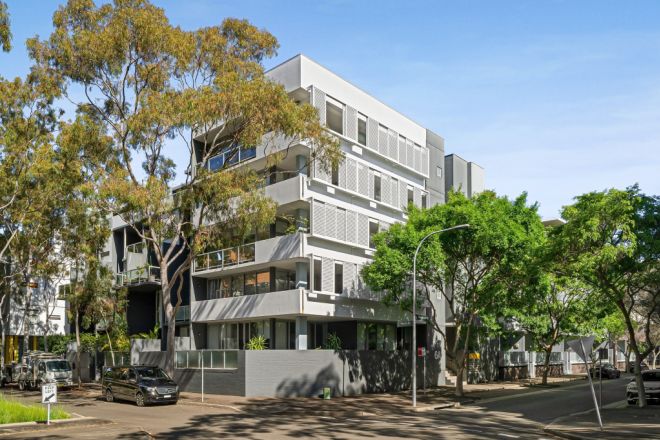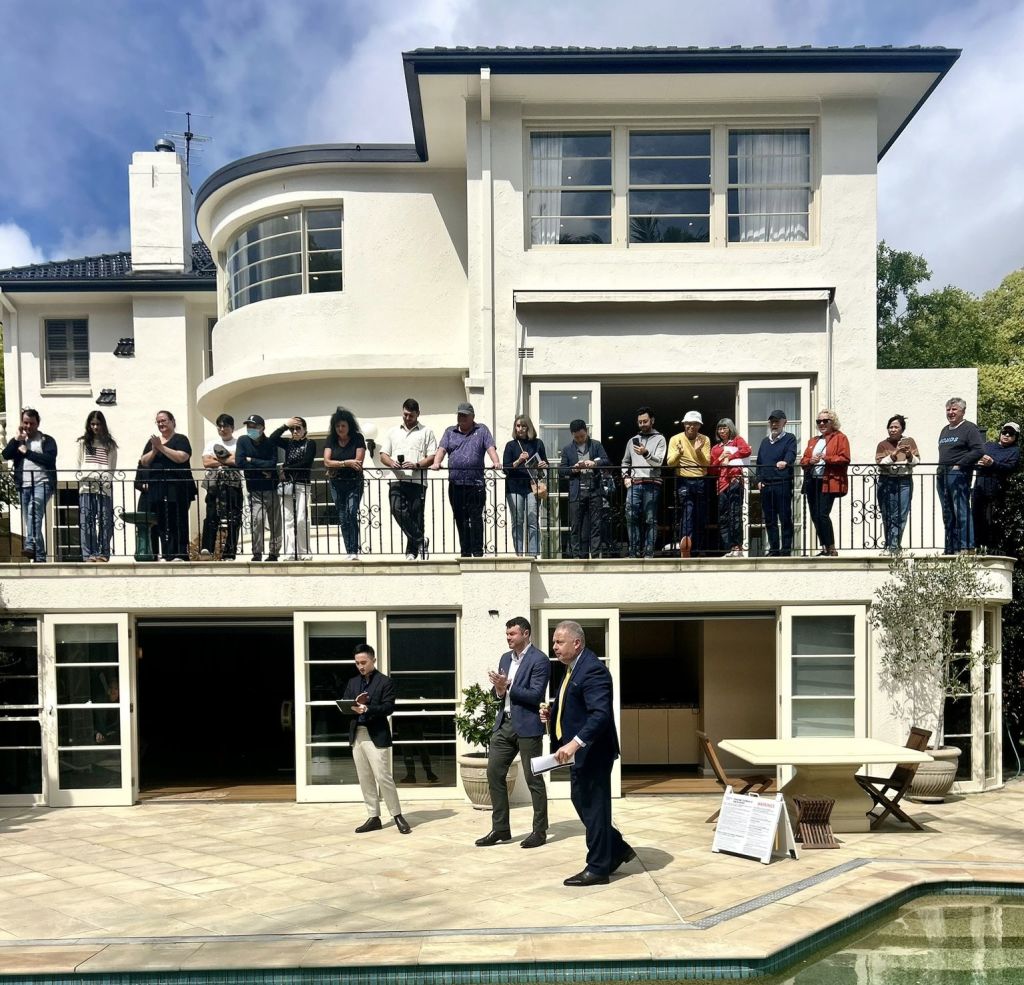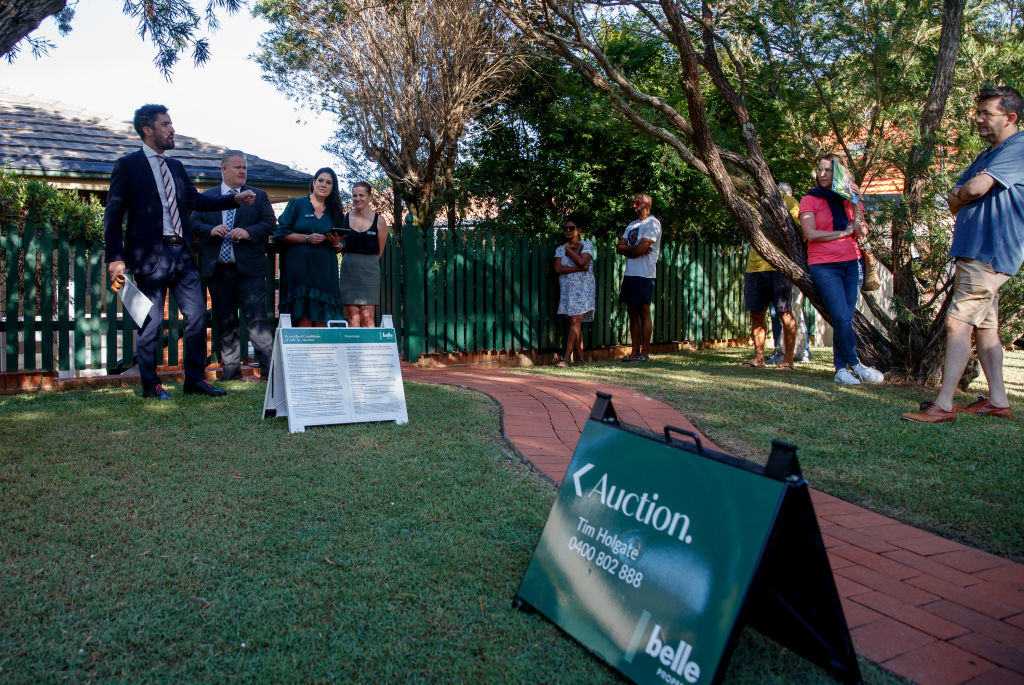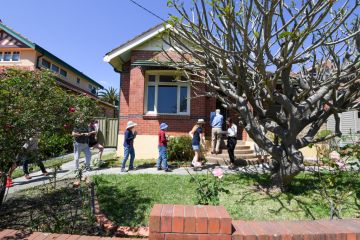Do Americans use auctions to sell property?
Top real estate agents in the US sometimes look longingly at Australian property auctions and wish they could buy and sell homes with a similar system that’s fast, efficient and sets a market value with the minimum of fuss.
And now, an Australian real estate agency has moved to the US to try to convince American realtors to use auctions more often as an integral part of their selling and buying system.
While the US real estate industry auctions a small number of homes every year, these tend to be confined to foreclosures, or those sold with probate or as distressed sales, with no protections for buyers if the building is found to have termites or the bank refuses the loan.

“These are in the purview of developers and flippers who both get a brief window to inspect the property and put on a 10 per cent deposit, and then have no contingencies to protect them,” said Ted Winterer of Santa Monica Real Estate, and a former mayor of the city, selling some of the most expensive properties in the US.
“So, you have to be very savvy about real estate to make it work. You have to be sure when you go in to buy. I always think, ‘How much of a riverboat gambler are you?’ You can lose a lot of money because the average consumer doesn’t have the wherewithal to walk into a property and determine whether it’s good value, or not.”
The Australian system, however, typically involves a four-week marketing campaign, allowing for multiple inspections, building reports, and for buyers to have their loans approved by the banks, with many more safeguards built in.
It’s also much faster and is likely to fetch a higher price for vendors than the US system, which usually sells via listings with a price, or a range of prices, posted, says Ben Brady, formerly of Harcourts Australia, and now the chief executive of Harcourts Auctions in California and Harcourts North America.

“We moved over to build the auction platform for our company and introduce it as another concept to sell property,” said Brady. “We started in southern California and are now doing several thousand across the country.
“We want agents to progress from using it only in a distressed sense to where it becomes a way of converting a sale when there’s a stale listing. It might take another 10 years to become more mainstream because people are so used to the multiple listing system to be able to syndicate a listing to websites, and it’s like trying to explain to a 65 or 75-year-old person about AI.”
One challenge to Brady’s mission, however, is the current low levels of stock on the American marketplace. Generally, there have been 5-6 million properties for sale across the country in any one year; for the past few years, that has been hovering around 3 million, he says.

“In those circumstances, agents don’t care about getting the best price for their sellers,” Brady said. “They just list a property for a sky-high price, then have multiple price reductions until it sells.”
But one advantage of not having an auction system, advises Winterer, is that the vendor can actually choose the buyer, and refuse any developers who come forward, for example, intending to demolish a much-loved home.
A disadvantage is possibly missing out on the best possible price. “A couple of years ago, some people who wanted to sell a property here wanted to set the highest price possible in the listing, but I had to tell them that would probably deter buyers,” Winterer said. “But with an auction, there’s always the chance of hitting that price.
“The Australian system just looks new and strange to us, and humans aren’t good at adapting to change.”

In San Diego, realtor Jessica Vance of her eponymously named company actively envies our system, but says it takes a sophisticated buyer to navigate it. One buyer she represented at a rare auction turned out to be the only bidder at an auction, but still ended up paying a price way over the odds – until she managed to negotiate it down for him.
“There’s some interesting psychology about auctions,” she said. “People come forward and compete against each other, and end up paying the top price the market will bear, according to the value the person individually puts on a property.
“It means you find the right buyer in the shortest period of time, which is a brilliant strategy. I think it’s quite an advanced system. It’s much quicker and faster than having a traditional listing, which is a bit archaic. You’re likely to get a higher return, and it’s very, very clever.”
One issue she can envisage, however, is that auctions work well in a rising market, whereas property prices in San Diego have risen by up to 66 per cent in the past five years, but have now started to fall. “And you want to race the market up, rather than chasing the market down,” Vance said. “But, generally, I think auctions are the way to go.”

Falling markets can prove a problem with any idea of introducing a more general system of auctions into the US, believes one of Australia’s top auctioneers, Paul Tzamalis of the Auction Company, whose wife is American and who has previously worked in the US for a time.
“If you look at the cycle of US property, the market does fluctuate quite a bit,” he said. “Australia, on the other hand, has relatively steady growth over the past 100 years, which means if you do overpay at auction, then in a few years, you’ll have made it up.
“But in the US, auctions do have that negative association with foreclosures and when they sign a contract after a listing, the price is subject to a building inspection or getting finance. But in mature and established markets, say on the east or west coast, where there is a tradition of appreciating capital, it could work well.”
Ben Mizes, a licensed real estate agent in Oregon, investor with 22 rental units, and president of property education platform Clever Real Estate, says he has seen the occasional auction work.
“I have seen auctions perform quite well for one-of-a-kind, luxury properties with a lot of buyer competition, as well as distressed homes where speed is important,” he said. “They do tend to create urgency, but the negative is that reserve auctions often have fewer people willing to bid at auction, which can stifle results in more traditional markets.
“For sellers, an auction can often be a tactical tool, especially in hot metro markets where inventory is limited but it’s not one-size-fits-all.”
We recommend
We thought you might like
States
Capital Cities
Capital Cities - Rentals
Popular Areas
Allhomes
More
- © 2025, CoStar Group Inc.










